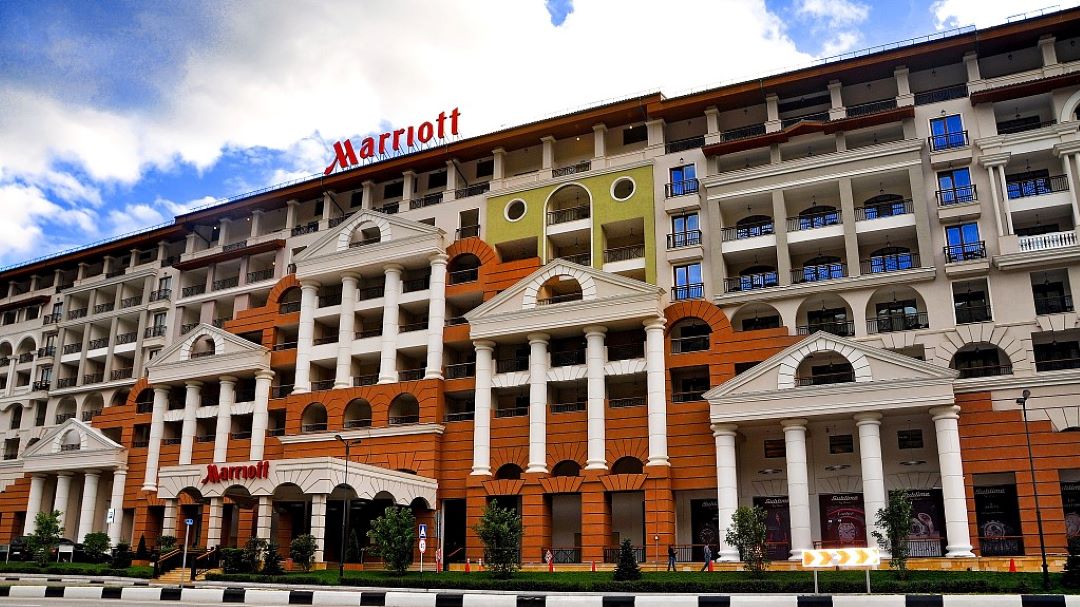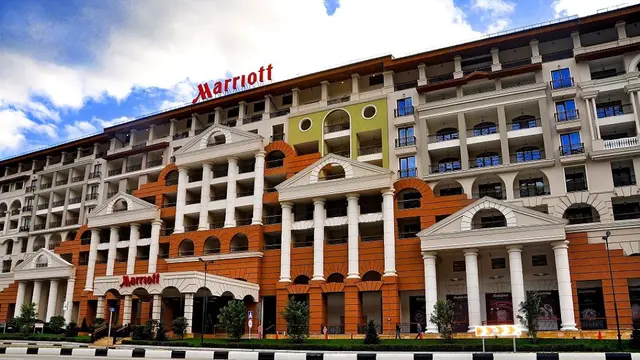
Logo of Marriott hotel is seen in Russia. /VCG
U.S. hotel operator Marriott International posted a bigger-than-expected quarterly loss on Monday, as the coronavirus crisis curbed global travel and led to a plunge in room bookings.
The company's total revenue plunged 72.4 percent to 1.46 billion U.S. dollars, missing Reuter's estimates of 1.68 billion U.S. dollars.
Marriott's shares, down 40.3 percent this year, fell 3 percent in pre-market trading as the company also reported an 84.4 percent plunge in revenue per available room (RevPAR) – a key performance measure for the hotel industry.
However, Marriott echoed smaller rival Hilton's comments from last week, saying it now expects a gradual rise in occupancy rates across the world although it may take a few years for them to return to pre-COVID period demand levels.
"While our business continues to be profoundly impacted by COVID-19, we are seeing steady signs of demand returning," Chief Executive Officer Arne Sorenson said in a statement, adding that the Greater China division continued to lead the recovery.
China has allowed inter-provincial group tours
to resume
in low risk areas since July, after a suspension of six months. Online travel giant Trip.com reports search figures for domestic tours rose fivefold on its website after the ban was lifted.
Marriott said it was seeing a recovery across all regions, with global occupancy rates of 34 percent for the week ending on August 1, up from 11 percent from the week that ended on April 11. In China, occupancy levels have reached 60 percent.
The company said it has reopened 91 percent of its worldwide hotels, compared with 74 percent in April.
On an adjusted basis, Marriott reported a loss of 64 cents per share in the second quarter ending on June 30 – greater than analysts' expectations of a loss of 42 cents per share, according to IBES data from Refinitiv.
Marriott previously reported a quarterly net loss in 2011 due to a charge related to its now spun-off timeshare business.
(With input from Reuters)
 简体中文
简体中文

